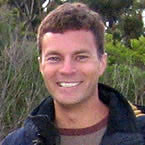Like everyone else, I have been a parent for a while, but something else for longer. In my case, six years of doctor training preceded my first daughter. For others, a career as a pilot or professor, cook or contractor. Beyond work and school, we are all enrolled in a life-long course in relationships and responsibilities. If we are fortunate, we carry an air of competence with us. Each of us, in our own area, large or small, is an expert.
Not so at home. Perhaps a reflection of my brief decade of on-the-job training, my daughters conduct a rolling performance appraisal with a gimlet eye. To their credit, they follow the best principles of human-resource management and provide me with regular feed-back. Apparently, I have competence in tucking-in, blending smoothies, and acrobatic throws in the pool. Improvement is needed, however, in the areas of steaming milk on the cappuccino machine (“not enough foam”), brushing their hair, and dressing myself in matching clothes.
Fair enough. Parenting is life with more moving parts; varied challenges under greater or lesser time pressure, with and without a good night’s sleep. It is to be expected that my talents will range from master to moron. I accept that I am no barista.
I am, however, a doctor. If I can’t be trusted to braid hair, at least I can be an authority on medical matters. But even here I am not judged an expert. Guided by their own estimation of expertise, my daughters have assigned this responsibility to others.
Their choices are perplexing. I am unable to gainsay Edward, the kid who lives next door, on the mysteries of the body. If Edward says that broccoli is poisonous, my arguments to the contrary reveal me as a plotting Borgia. They imbue a select few adults with medical omniscience. Naturally, the science teacher is to be trusted. I can live with that. But why my brother? If he appeared with a rusty screwdriver and a bottle of aspirin my daughters would gladly let him remove a kidney. Perhaps he has a charismatic air of competence. Perhaps they have never seen how poorly he foams milk.
My eldest daughter, Teagan, recently developed another bladder infection. We had previously taken her to a pediatrician and done the work-up. There was nothing fundamentally wrong, she just needs antibiotics occasionally. This is doctor 101 stuff. I wrote the prescription and went to the pharmacy. As I poured the medicine into a spoon she eyed it suspiciously. “How do you know that’s right?”. “I know, Teagan, because I just checked in a book, and this is the right type of medicine and the right dose for you.” She recoiled in horror. ”You had to look it UP? You don’t even know what you’re doing!”
Perhaps a demonstration of my credentials will be persuasive. I walk her to the second floor library, where my diploma hangs. “Look,” I offer “I’m a real doctor. I can definitely take care of this infection.” Her eyes narrow as she scans the filigreed Latin. “There’s nothing here about bladders.” Her voice carries the finality of a courtroom lawyer. She has rested her case.
I have a moment of frisson as paternal justice is meted out. I am eight years old, thrashing and pleading for a real doctor as my Dad — the author of a textbook of eye surgery — tries to remove a few mattress sutures from the crook of my elbow. A real doctor, in a white coat, backed up by an emergency room full of equipment, put those sutures in after the broken bottle had done its work. Now my father is coming after me with sewing scissors and needle-nose pliers as I am held to the kitchen counter by my mother. “No!” I scream “You’re an eye doctor! Not an arm doctor!” The sutures are out after a twenty minute struggle. While the arm is whole, my Dad’s sense of expertise is shattered.
I judge that my time is better spent learning how to use the cappuccino machine. I make an appointment for Teagan with the pediatrician.

